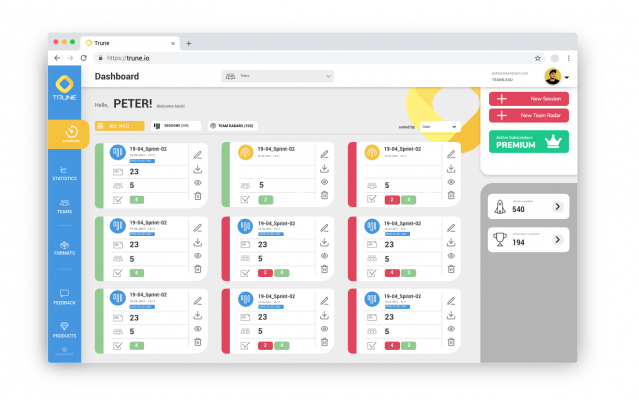Will power, or you can also call it discipline, is the ability to control yourself. The interesting thing about will power is that it behaves like a muscle: it needs time to recover after you strained it, but you can train it to get more strength.
On the one hand side you need will power to overcome inner temptation and force yourself not to do things. Such things, which are bad for you, but you are so used to.
And on the other side, you need will power to force yourself to do things, which you know would be good for you.
For instance, you need will power to overcome the temptation to not eat sweets when you are on a diet. And you also need it to push yourself out of the couch and to the gym to get in shape.
It seems that people, who achieve a lot in life have a very high will power, otherwise they would not be able to achieve those things. For instance, athletes train every day, while for “normal” people it is hard to even go to the gym once or twice a week.
Will power is limited
Science found out in multiple experiments, that will power of humans is limited. Similar to muscle power, you have only a limited amount of will power per day.
For example you can lift weights only a certain amount of times until your muscles get tired. Then your muscles need some rest to recover, before you can use them again.
Similarly, you can stretch your will power only to a certain degree, after that you need some time to recover to gain back your strength.
I was recently reading the book “The power of habit” by Charles Duhigg. I highly recommend the book, if you want to know more about habits from a scientific point of view.
Anyway, in the book he mentions an experiment, which has been conducted in the 90s.
The experiment
76 undergraduates participated in the experiment. They were told, that the goal of the experiment was to test taste perception. But his was not true, the real goal was to test will power.
Cookies vs radish eater
Each of the participants was put in a room with a plate of food. Half of the plate was filled with warm, fresh cookies and the other half was filled with radish, the bitter vegetable.
Then the scientist told half of the participants, that they are only allowed to eat the cookies and the other half was only allowed to eat the radish. Then the scientist left the room and the participant was on his own.
Of course, the cookie eater were in heaven and the enjoyed the fresh and sweet cookies.
The participants assigned to the radish were craving for the cookies, but they had to stick to the bitter vegetables. It took them a lot of discipline to resist the warm cookies. Ignoring radish is easy, but ignoring the cookies requires a lot of discipline.
The unsolvable puzzle
After a few minutes the scientist came back to the room, removed the plate and told the participant that they need to wait for few minutes. The participant got a puzzle, which they should solve while they were waiting.
The scientist told the participant, that they could ring the bell, if the need something. Then the scientist left the room.
Actually, the puzzle was the most important part of the experiment. It was not solvable. When you try to solve it you will always fail and it requires a lot of discipline to try it again and again and again.
The cookie eater were very relaxed. They tried to solve the puzzle over and over again. They still had a lot of will power left. Some of the cookie eater spend more than half an hour before they rang the bell.
The radish eater on the other hand, were very frustrated and they rang the bell much earlier. Some of them were angry and told the scientist, that this is a stupid experiment.
After all, the cookie eater rang the bell after 19 minutes on average, while the radish eater rang the bell only after 8 minutes. The cookie eater spent more than the double amount of time to solve the unsolvable puzzle.
This means the radish eater had already consumed a lot of their will power when they were resisting the cookies.
Will power can be trained
There are a number of conducted experiments showing that will power can be trained. If you want to know more, than read the book, which I already mentioned above: “The power of habit” by Charles Duhigg.
You can train your will power, like you can do with your muscles. Training every day makes your muscles stronger and you are able to lift more weights.
It is the same with will power, training it increases the strength and the maximum of your daily will power increases.
Don’t rely on will power
I thought that successful people have a lot of will power, or discipline. Otherwise how would they be able to achieve all those things?
To my surprise it is not will power, that drives successful people. Will power is important, but the key here is to build habits.
Building a habit requires discipline, but when you have built one, then executing it requires almost no discipline at all.
For example, when you were a kid, then your parents probably always had to remind you to brush your teeth, before you go to bed. It required a lot of discipline by your parents to push you and build this habit for you.
Nowadays you probably don’t even think about that you have to brush your teeth before you go to bed. It just happens automatically and doesn’t require a lot of discipline. The habit has been build, executing it is easy.
Anyway, the whole topic about habits is a very big and interesting one. Therefore I will dedicate one of the upcoming blog posts to that topic.
Ok, that’s it for this week
The next time you come home from work with the plan to go running, but you don’t have any motivation at all, then remember that will power and discipline can be trained like a muscle 🙂
Stay tuned and have a great week. HabbediEhre!


Trackbacks/Pingbacks